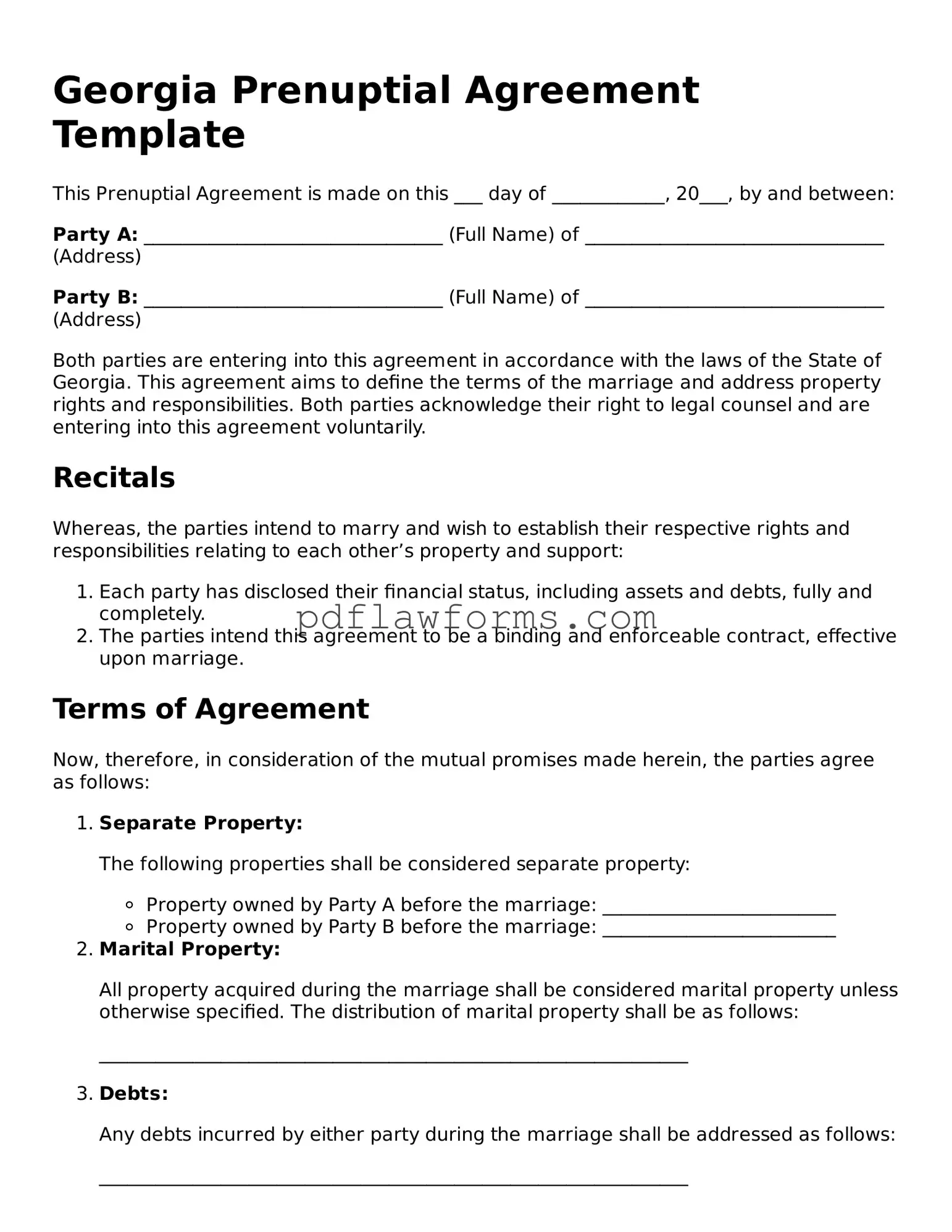When preparing a prenuptial agreement in Georgia, individuals often encounter common pitfalls that can undermine the effectiveness of the document. One frequent mistake is failing to fully disclose assets and debts. Transparency is crucial; both parties should provide a comprehensive account of their financial situation. Omitting significant assets can lead to disputes later on, potentially rendering the agreement unenforceable.
Another common error involves not having the agreement reviewed by legal counsel. While it may seem tempting to draft the document without professional assistance, legal nuances can be complex. A qualified attorney can help ensure that the agreement complies with Georgia law and addresses the specific needs of both parties.
Additionally, individuals sometimes rush the process. Prenuptial agreements should not be created in haste. Taking the time to thoughtfully discuss and negotiate terms can help avoid misunderstandings and foster a sense of partnership. A rushed agreement may lead to feelings of resentment or distrust in the relationship.
People also often neglect to consider the future. A prenuptial agreement should not only address current assets but also anticipate changes that may occur over time, such as the acquisition of new property or changes in income. Failing to include provisions for future circumstances can lead to complications if the marriage ends.
Moreover, some individuals mistakenly believe that a prenuptial agreement is only for the wealthy. This misconception can lead to a lack of preparation. Regardless of financial status, a prenup can provide clarity and protection for both parties, making it a valuable tool for anyone entering a marriage.
Another mistake is overlooking the importance of timing. It is advisable to initiate discussions about a prenuptial agreement well before the wedding date. Waiting until the last minute can create unnecessary pressure and may result in one party feeling coerced into signing.
Furthermore, failing to address spousal support can be a significant oversight. Many couples assume that support will not be an issue, but including clear terms regarding alimony can prevent future conflicts. It is essential to have open conversations about expectations and needs in this area.
Some individuals also forget to review and update the agreement periodically. Life changes, such as the birth of children or changes in financial circumstances, may necessitate revisions. Regularly revisiting the prenup ensures that it remains relevant and effective over time.
Lastly, individuals may not fully understand the implications of their agreement. Taking the time to read and comprehend each section is vital. Each party should feel confident in what they are agreeing to, as this fosters a sense of fairness and respect within the marriage.

